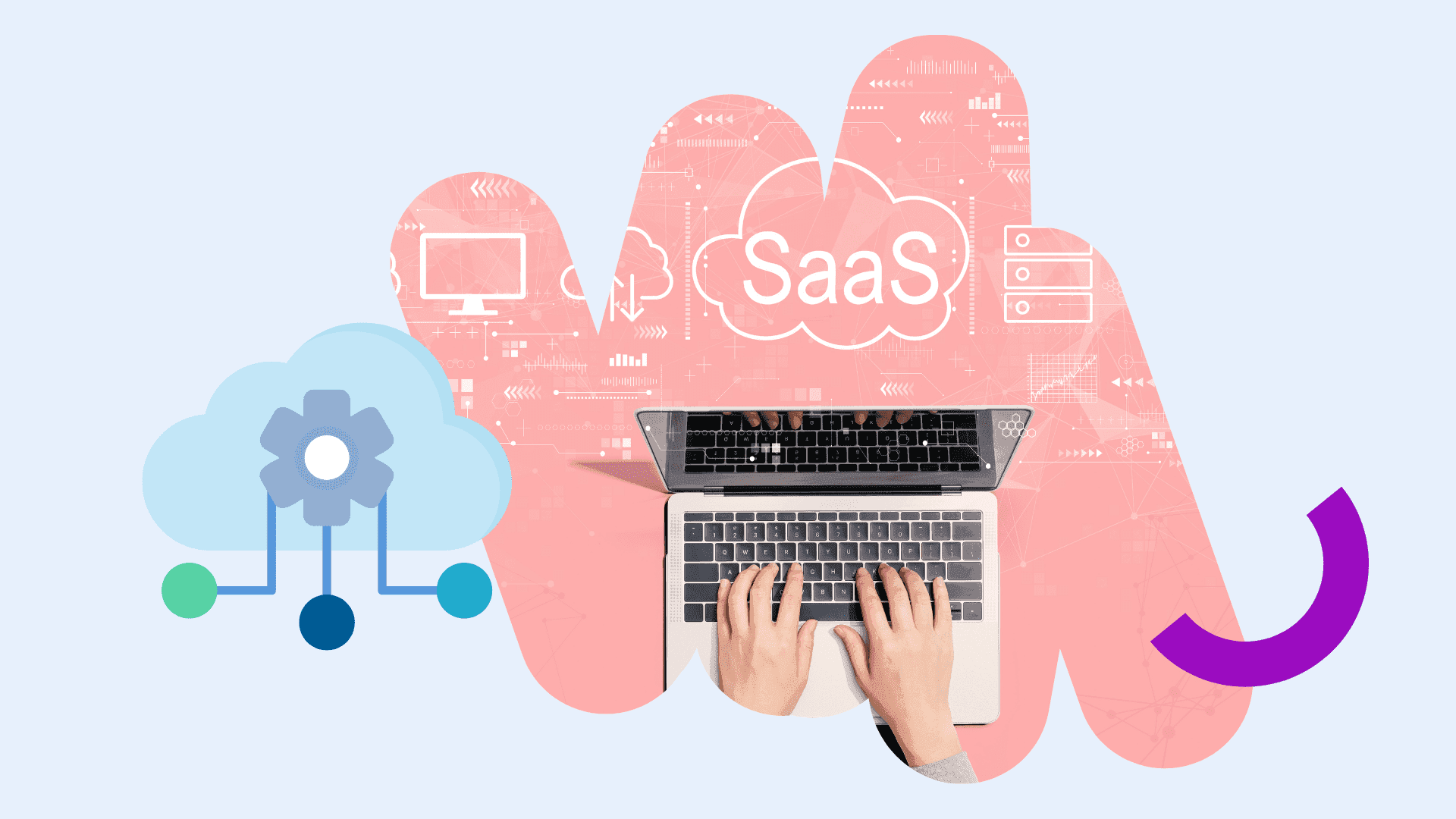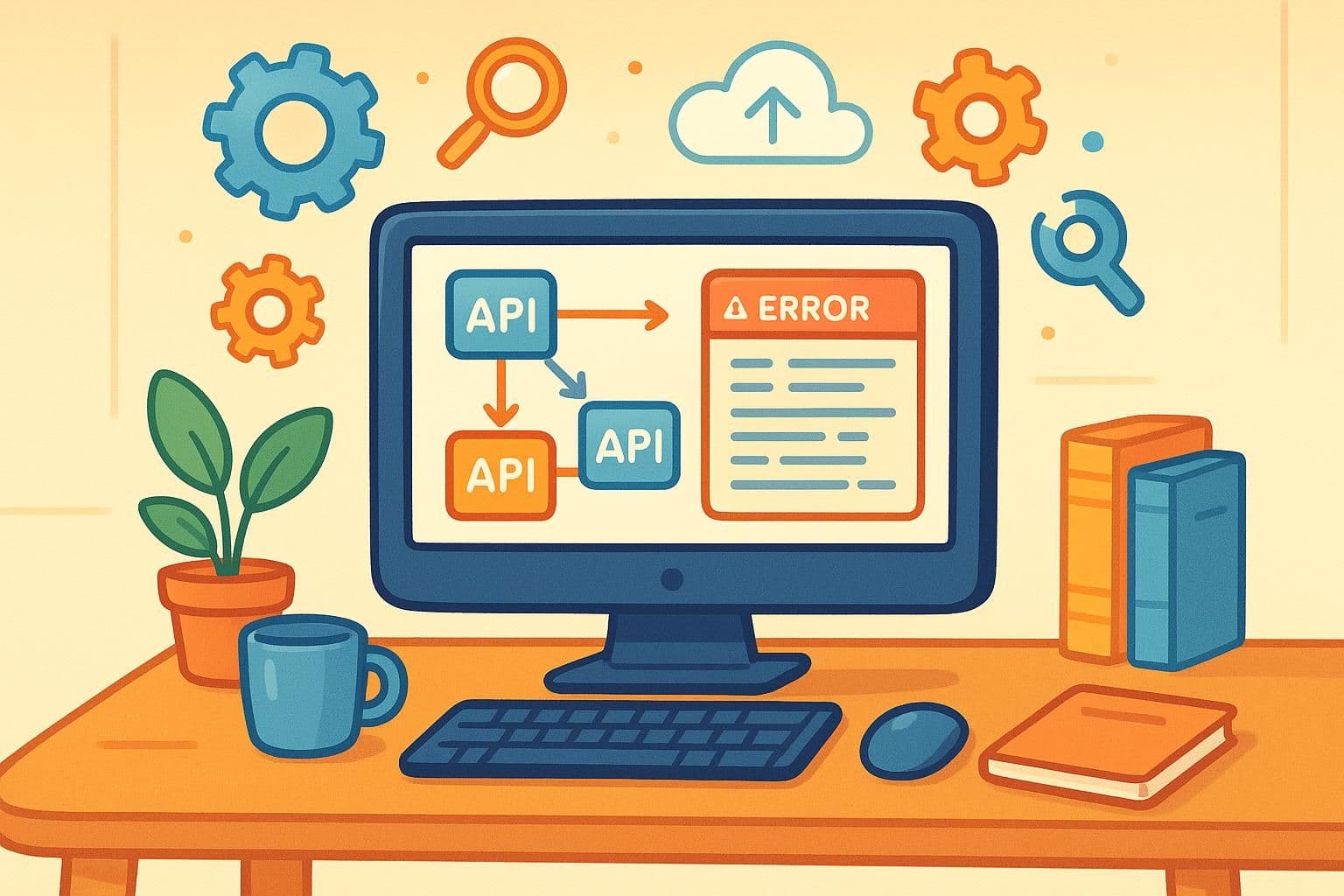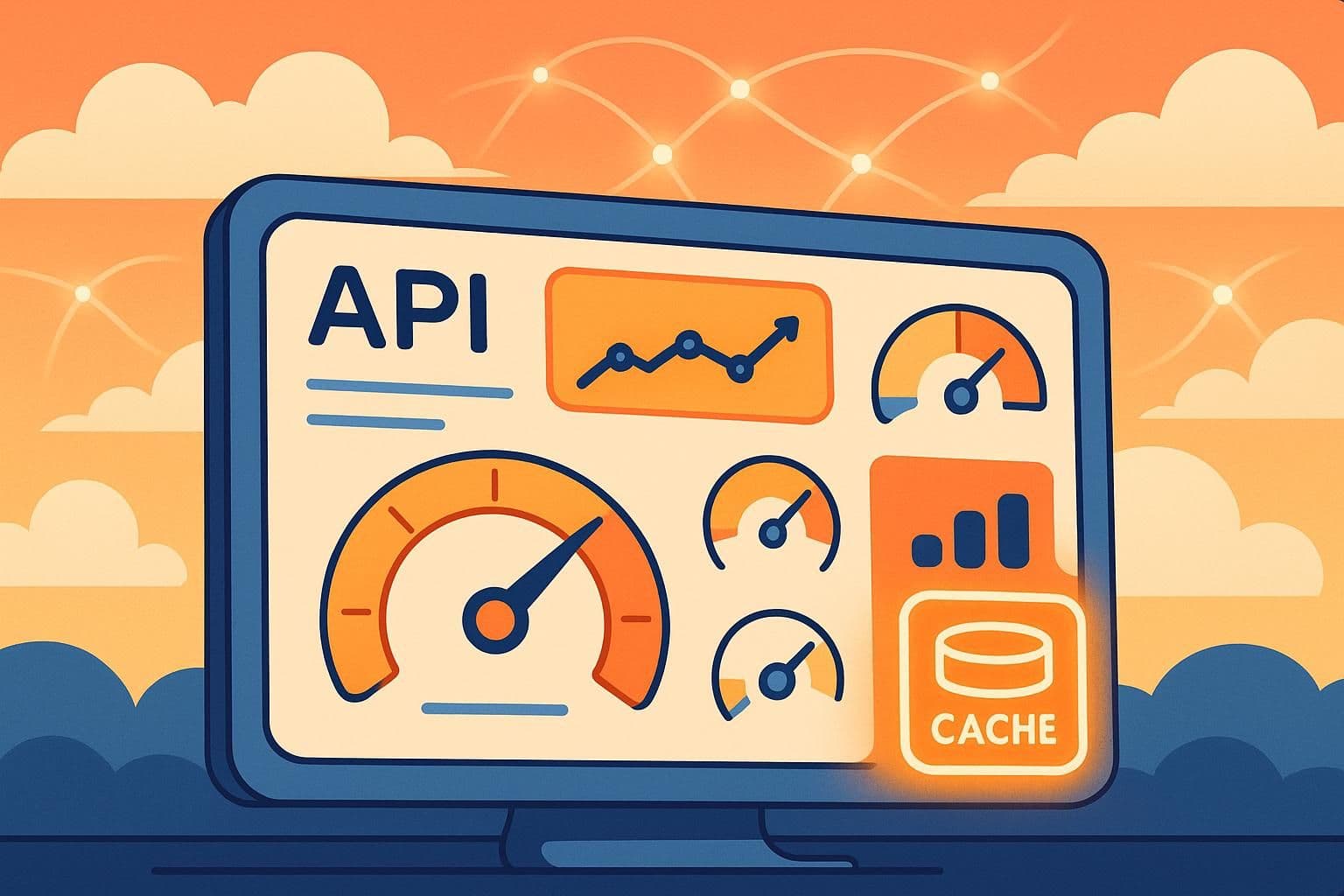Top 5 iPaaS Solutions in 2024
Integrating Applications with Top iPaaS Solutions

Picture this: your workday consists of juggling dozens of applications. CRM, email, messengers, task managers – the list is endless. On average, businesses use around 130 different apps daily!
iPaaS (integration platform as a service) comes to the rescue, uniting all these disparate tools into a single, cohesive system. iPaaS ensures a smooth and consistent workflow for your organization, saving time and effort previously wasted on copying data between applications.
So, what are the benefits of iPaaS?
- Automation of routine tasks: iPaaS allows you to automate repetitive actions, freeing up your time for more important matters.
- Improved efficiency: fast data exchange between applications increases work efficiency and speeds up decision-making.
- Reduced costs: iPaaS eliminates the need to maintain a large IT team for application integration.
iPaaS is the future of the workspace. Although this technology is relatively new, it is quickly becoming indispensable for businesses of all sizes.
In this article, we will explore the best iPaaS solutions on the market and their unique features.
Optimize your iPaaS on Latenode – your low-code automation platform
Key Takeaways:
Top iPaaS platforms are distinguished by their essential features, which can significantly impact business operations. As the landscape evolves with AI, security, and niche applications, it's crucial to choose the right iPaaS solution to stay ahead of the curve and reap the benefits of a smoother, more efficient future.
Key Features of Leading iPaaS Solutions
So, what separates average iPaaS providers from the best? Let’s talk about some of the key features that the market leaders in the industry offer:
- Easy UI: An iPaaS solution shouldn’t just cater to people with a tech background like myself or other coders. I believe a great iPaaS tool should be usable by everyone, regardless of whether they can code.
- Real-Time Integration and Automation: The standout feature of an iPaaS platform is that it allows real-time integration and data sharing with minimal human intervention. You can also automate data flows and procedures using the latest tools.
- Scalability and Flexibility: Using an iPaaS becomes more important as your software needs to grow. It lets you adapt to any modifications without delay and lets you scale for huge amounts of data with ease.
Benefits of Implementing iPaaS
So, what benefits can an iPaaS solution bring about for your business? Below are some of the essential ones you must know about:
- Reduced Cost: Instead of managing an entire IT team to facilitate integrations between different apps, you can now leverage a low-code tool to perform these functions on your own.
- Business Agility: An iPaaS platform makes it easier than ever to share data in real-time, helping businesses move fast and allowing focused decision-making without hunting for data across multiple apps.
- Seamless Changes to Workflow: iPaaS tools make it very easy to switch up your workflow, as you can add and delete integrated apps with very little effort.
Criteria for Choosing the Right iPaaS
iPaaS tools can be game-changing for an organization that utilizes many software tools. But, I must point out that not all iPaaS vendors are equal. Some might be loaded with impressive features but not suit our workflow.
On the other hand, you might also find that a tool without a lot of attractive features does the job just fine for you, which saves you money and lets you minimize complications. So, I’ll stress again that you must check for compatibility with your existing technology stack and business system.
The simple reason is this - it makes no sense to overhaul a system your organization uses simply because of another tool. You’ll want to use a solution that slots in perfectly with your existing apps and processes.
When choosing iPaaS providers, take the security and compliance standards into account. This can help protect your organizational and customer data and info.
Using a single integration solution helps eliminate multiple vulnerabilities in the system and fortify the infrastructure. So, consider using an iPaaS tool compliant with the major data exchange protocols.
Lastly, remember to check the customer service provided by the company before you subscribe. A team must be available to solve any problems or queries on short notice, which helps you troubleshoot with minimal delay. Otherwise, a small problem, such as a code bug, can become a hassle that disrupts your entire business process.
Top iPaaS Trends in 2024
What is the current scenario of iPaaS tools across the board? I think we have to start talking about the use of AI and ML capabilities when we discuss this point.
The top iPaaS vendors are readily experimenting and incorporating AI and ML into their products. This helps businesses increase the level of automation in their workflow and eliminate repetitive tasks, which can be programmed by leveraging ML.
I will also put more emphasis on security. Data breaches and attacks are becoming increasingly common, alongside the rise in customer awareness of how their data is used.
iPaaS tools are slowly becoming more specialized and entering niche markets, too. A simple example is how they have entered the marketing space. Like teams can easily integrate their mailing software with their Salesforce client and CRM software. This way, end-users are taking advantage of workflow and integrations tailored to their use case, eliminating unnecessary features.
1. Latenode
![]()
Latenode - Top Features:
- Natural Language Coding: Latenode's unique feature allows you to build integrations using natural language commands, eliminating the need for complex coding.
- API-less Integrations: Connect applications even without readily available APIs, expanding integration possibilities.
- Complex Integrations: Handle intricate workflows and data transformations with ease.
- Enhanced Error Handling: Benefit from robust error handling capabilities to ensure smooth and reliable integrations.
- Active Community Support: Leverage the vibrant Latenode Discord community for assistance, collaboration, and problem-solving.
**Latenode - Pricing:
**
- Free Tier: Latenode offers a free tier with basic features, perfect for getting started and exploring the platform.
- Paid Plans: For more advanced features and higher usage limits, Latenode provides affordable paid plans starting from $17 per month.
Overall, Latenode is the best option for businesses looking to build an integrated workflow with minimal coding at a very reasonable pricing model. It also offers a lively Discord server with members eager to help newcomers out every step of the way.
Make your business succes with Latenode – your low-code automation platform
2. Zapier
![]()
Zapier - Top Features:
- Extensive Integration Library: Zapier boasts a vast library of pre-built integrations with thousands of popular applications, making it easy to connect your favorite tools.
- Multi-Step Workflows: Create complex workflows with multiple steps and conditional logic, automating intricate processes across various applications.
- User-Friendly Interface: Zapier's intuitive interface makes it simple for users of all technical levels to build and manage integrations.
- Wide Range of Triggers and Actions: Choose from a wide array of triggers and actions to customize your workflows and automate tasks based on specific events or conditions.
- Collaboration Features: Collaborate with team members on building and managing integrations, streamlining workflows across your organization.
Zapier - Pricing:
- Free Plan: Zapier offers a free plan with limited features and usage, suitable for basic integrations and testing the platform.
- Paid Plans: For access to more features, higher usage limits, and advanced functionality, Zapier provides various paid plans starting at $20 per month.
If you’re looking to integrate common apps such as Salesforce with Facebook Leads, there’s a good chance Zapier already has it. They’re well-known for their library of pre-built connections and offer great support for conditional workflow.
3. Boomi
![]()
Boomi - Top Features:
- Low-code Development: Boomi's low-code platform simplifies integration development, allowing users to build complex workflows with minimal coding.
- Distributed Architecture: Benefit from Boomi's distributed architecture for enhanced scalability, performance, and reliability.
- Robust Security: Boomi prioritizes data security with comprehensive security features and compliance certifications.
- Wide Range of APIs: Connect to various applications and systems using Boomi's extensive support for REST, SOAP, EDI, MDM, and other APIs.
- Extensive Resources: Access a wealth of guides, training materials, and community forums for support and learning.
Boomi - Pricing:
- Subscription-Based: Boomi operates on a subscription model with tiered pricing based on usage and features.
- Starting Price: The table indicates a starting price of $50 per month, but it's recommended to contact Boomi for detailed pricing information and plan options tailored to your specific needs.
Boomi is great if your budget is a bit higher and you’re willing to invest in a platform renowned for it’s distributed architecture.
4. Jitterbit Harmony
![]()
Jitterbit Harmony - Top Features:
- Custom API Creation: Jitterbit Harmony excels in creating and managing custom APIs, allowing you to connect to unique or proprietary applications.
- Advanced Integration Capabilities: Handle complex integrations with features like data transformation, mapping, and orchestration.
- Logging and Debugging Tools: Benefit from comprehensive logging and debugging tools to troubleshoot and optimize integrations effectively.
- Analytics and API Security: Gain insights into integration performance with built-in analytics and ensure secure data exchange with robust API security features.
- Support for Various APIs: Connect to a wide range of APIs, including REST, SOAP, OData, and custom APIs built using Node.js or Java.
Jitterbit Harmony - Pricing:
- Enterprise-Level Pricing: Jitterbit Harmony caters to larger organizations with more complex integration needs, reflected in its higher price point.
- Starting Price: The table indicates a starting price of $1000 per month, but it's recommended to contact Jitterbit for detailed pricing information and customized plans based on your specific requirements.
Jitterbit is a high-ticket iPaaS solution and is well-suited to large organizations that need to work with custom APIs for their unique apps and workflow.
5. IBM Connect App
![]()
IBM App Connect - Top Features (Based on the Table):
- Extensive Toolset: IBM App Connect offers a comprehensive suite of tools, including App Connect, API Connect, DataPower Gateway, Event Streams, and Aspera, providing a holistic integration solution.
- API Management: Manage and secure your APIs effectively with robust API management capabilities.
- Hybrid Integration: Seamlessly connect cloud-based and on-premises applications for a unified integration experience.
- High Availability and Scalability: Ensure high availability and scalability to meet the demands of your growing business.
- Big Brand Reliability: Benefit from the reliability and support of a well-established technology leader like IBM.
IBM App Connect - Pricing:
- Subscription-Based: IBM App Connect follows a subscription-based pricing model with various tiers based on features and usage.
- Starting Price: The table suggests a starting price of $500 per month, but it's best to contact IBM directly for detailed pricing information and plan options tailored to your specific needs.
- Limited Community Support: While IBM offers documentation and support resources, the table indicates that the community support may be more limited compared to other platforms.
For those who want the reliability and backing of a big-name brand, IBM Connect is the way to go. It’s the way to go especially if you could benefit from the range of apps that come with a Connect subscription.
Overcoming Challenges with iPaaS
iPaaS tools today require little to no coding experience from users. But, that doesn't mean it's as easy as a few clicks. You'll still have to go through a learning curve while using your new tool to ensure that the integration is successful.
This is where the importance of training and a strong community shines through, so that you can navigate challenges with ease.
An iPaaS ideally helps you bring two disparate apps together, which may not have in-built integrations. Ensuring data privacy and eliminating security risks is pivotal to having an uninterrupted workflow.
To ensure minimal bottlenecks and delays in your workflow, ensure that your iPaaS is compatible with the existing apps and meets your unique requirements.
Conclusion
When selecting the right platform, it is important to consider compatibility with the existing technology stack, compliance with security standards and the quality of the vendor's customer support. One of the market leaders is Latenode, which offers a number of unique features:
- Natural language coding to create integrations without complex programming
- Connecting applications even without pre-built APIs
- Handling complex workflows and data transformation
- Improved error handling for robust integrations
- Active community on Discord for support and collaboration
Latenode also offers a free plan to get started and low-cost paid plans starting at $17 per month, making it ideal for creating integrated workflows with minimal coding and on a tight budget.
Overall, iPaaS opens new horizons for digital business transformation by seamlessly running disparate applications in a single, consistent environment. By choosing the right solution like Latenode, companies can save time and resources by focusing on core tasks.
Optimize your iPaaS on Latenode – your low-code automation platform
FAQ
I Have a Small Business. Do I Still Need an iPaaS?
Yes, teams of all sizes can benefit from an iPaaS. In fact, the sooner you implement it, the easier it is to scale it later. It can also help you immensely to have an efficient workflow from the beginning to blow your competition out of the water.
How Does an iPaaS Help With Data?
An iPaaS eliminates the need to copy data from one platform to another, reducing the margin of error as well as the time and effort needed to perform these repetitive tasks in the business workflow.
What is the Projected iPaaS Industry Growth?
According to Verified Market Research, the industry is expected to reach a massive valuation of $61 billion by the end of 2030. The projected year-on-year growth is 35.2%.



